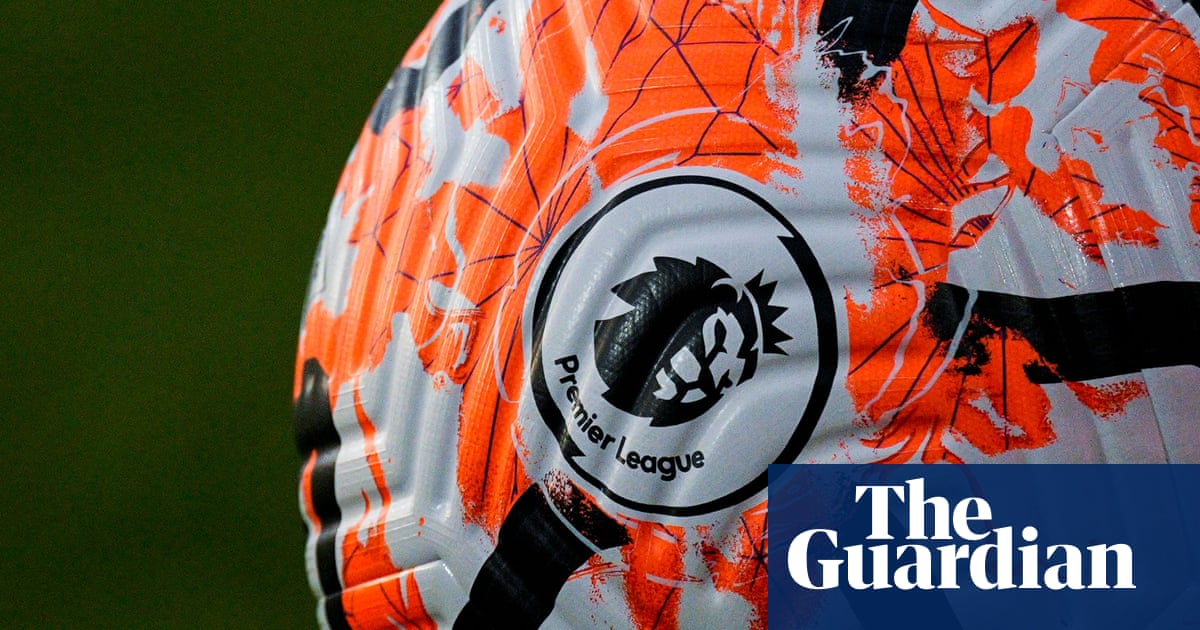
The sacking of five Premier League managers already is in part because Brighton, Huddersfield and Newcastle do not look like relegation fodder – and because Sunderland’s woes show what the drop could mean.
Five Premier League managers have lost their jobs so far this season before we are a third of the way in, and looking at the bottom three in particular the figure could still rise again before Christmas.
To put that into context, this time last season only one manager had been sacked, Francesco Guidolin almost inevitably failing to live up to expectations at Swansea, and it would take until late February and the tear-jerking removal of Claudio Ranieri at Leicester to take the tally to five.
Another odd thing about the five departures this season is that aside from Frank de Boer, appointed by Crystal Palace in the summer, the same men were responsible for guiding their clubs to mid-table security the season before. If you look at the final table for 2016-17, the clubs who have parted with their managers finished seventh, 10th, 11th and 12th. That bandwidth should represent solidity and a job reasonably well done. It is not where you would expect managerial dissatisfaction to set in a matter of months later.
So what has changed this season, why does panic seem to be setting in among seemingly respectable clubs with sound Premier League pedigrees?
Obviously some of the five have been doing really badly – Crystal Palace most notably, with West Ham, West Brom and Everton not far behind – and owners are more or less bound to act if there does not appear to be any immediate prospect of climbing out of trouble.
But West Brom have just sacked Tony Pulis, a firefighter, albeit an unpopular one, who has never been relegated. They could now turn to Sam Allardyce, who has a similar record and a good relationship with the Albion chairman, John Williams, but while Premier League status might be preserved would the fans be any happier with the football?
Five weeks ago most Everton fans were in agreement that Ronald Koeman had to go, the same Everton fans who were congratulating the club a year earlier on appointing a top-drawer manager. But if Koeman was as forceful and determined a character as he first appeared, could he not have been trusted with a little more time to turn the club around? It might not have been his fault that a striking replacement for Romelu Lukaku was not found, after all.
One could understand why the club pressed the panic button so early, results were woeful and the Goodison atmosphere was growing mutinous, but a month down the line it can not yet be said Everton have put themselves in a better position. The owners seem to have been delusional to a certain extent over the difficulty of finding a better-qualified manager than Koeman in mid-season, while some of the fans who celebrated the Dutchman’s removal might have been a bit quieter had they realized the most viable alternative was David Unsworth.
The point is that Everton, like West Ham and Palace, are still in trouble despite changing managers. This season climbing the table cannot be taken for granted once you are down at the bottom and part of the reason for that is the fact that the promoted clubs are all doing so well.
Brighton, Huddersfield and Newcastle are all together in a tight little knot in mid-table, exactly where the teams who have entered the sack race used to be. All five of this season’s managerial changes have taken place below them, while above them Burnley and Watford sail serenely on, their only apparent concerns being the likelihood of eventually losing their bright young managers to bigger clubs with relegation worries.
There is plenty of the season left and over the winter months some of those small but flourishing clubs – don’t write in, Newcastle are not small but they are newly promoted – may well find themselves stretched beyond their resources and drifting downwards in the table. Or they may not.
Until fairly recently it was normal to assume at least one of the promoted teams would go down, sometimes two, though the top of the Championship is so competitive these days that that pattern can no longer be relied upon to provide a buffer for existing Premier League clubs.
Thanks to Wigan coming up and staying for eight years, Bournemouth and Watford confounding all the doubters who said they would go straight back down again and Burnley showing the strength of judgment to stick with the same manager through the cycle of relegation and re-promotion, it is becoming increasingly obvious that the Premier League is nowhere near as daunting to newcomers as it once was.
Certainly the bottom half of the Premier League is not of a conspicuously better standard than the top half of the Championship any more. In fact teams coming up from the Championship will, generally speaking, have a better team spirit and a more expansive outlook because their promotion push will have required them to adopt a winning mentality instead of the survival one so prevalent in the lower reaches of the top flight.
This appears to be something new in the Premier League story. If Tony Pulis can no longer cut it, Mark Hughes is finding life difficult at Stoke and West Ham fans have yet to be impressed by David Moyes, perhaps the days of ugly football and a grim struggle towards 40 points for lower-placed teams are coming to an end.
Perhaps also, now that every Premier League team has money to spend and no one can seriously plead poverty, fans are right to complain about the standard of fare being served up and boards are intervening more quickly to prevent managers making any more dud signings. Both Everton and West Ham splashed the cash in summer, to little avail.
None of the five clubs who have dismissed managers have made any significant strides upwards, though of course the positions at Everton and West Brom are still vacant, and the new managers at West Ham and Leicester have had little time to make an impression.
Judging by the twitchiness owners have shown this season, everyone at the more established clubs still lives in mortal fear of relegation. The usual reason given is the sudden loss of revenue, which is significant, yet parachute payments are there to ensure that well-run clubs do not fall off a precipice.
The greater, unspoken fear, one feels, is that clubs accustomed to mere survival in the Premier League will drop through the Championship like a stone, a bit like Wigan did in their day and Sunderland are doing at the moment, and rapidly end up needing a telescope to locate the top flight.
So the question to be asked of all Premier League sides outside the top six is this: could your club hack it in the Championship? If not, why not? Because, at the very least, should the bubble ever burst at Burnley or Brighton, Huddersfield or Bournemouth, those clubs would require very little adjustment to get right back on the promotion track.
Which is surely how it should be, and probably explains why upwardly mobile “smaller” clubs are currently showing the way to bigger names whose main concern is hanging on for dear life to Premier League status.
The current bottom six in have all been in the Premier League for at least five years and this season, managerial changes or not, it looks as though they are going to have to play their way out of trouble and not rely on the inadequacies of anyone else. Good luck with that but, for the Premier League in general, it cannot be a bad thing.The Guardian Sport












